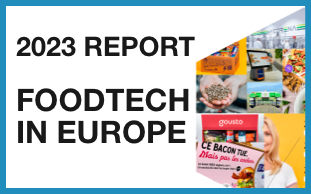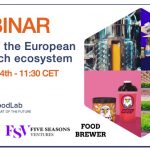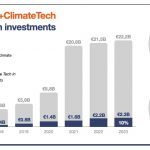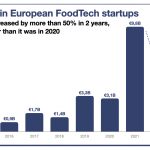Very few entrepreneurs succeed in launching a food direct-to-consumer (or D2C) space. As for other types of trends, it often works in waves, where an idea emerges somewhere and then spreads worldwide to end in IPOs and/or acquisitions, often in the same period. Right now, we are witnessing the end of the “meal replacement wave”. Indeed, which started 10 years ago. Tens of startups were created, and three winners are slowly moving toward their exit. Let’s have a look at what we can learn from it.
The four stages of the (food) D2C startup
To create a successful food brand, founders have to master successive sets of skills, each related to stages of growth:
1 – being a Swiss army knife in the stage from 0 to €1M, where you have to manage too many things such as:
- your crowdfunding video
- online acquisition
- production: with the stress related to being a small client to the company that produces for you (and so, being produced when they have spare time) or, even worse, setting up a makeshift production
Most fail here because… nobody is really interested in the startup’s value proposition, and it will never reach the €1M milestone.
2 – being able to scale from €1M to €10M.
You finally have a team (with many interns), and things are growing fast, but you must put the lid on spending. Again, from the limited number of startups that succeeded in reaching €1M, many will fail to reach the next stage as both the founders and the team are unable to find profitable growth. This is often where we see D2C startups’ fame and hype being disconnected from their sales. The brand is marketed on all social media, influencers are talking about them, founders are interviewed in podcasts, and their products are available through multiple channels… but they don’t sell.
3 – reaching profitable, self-sustained growth to reach an M&A spot (i.e. being desirable for an acquisition) with sales of at least €20M and ideally closer to €100M. Only a handful of companies reach this stage each year. Once again, the founders have to reinvent themselves to become managers of larger teams. One of the main challenges here is to internationalise successfully.
4 – if the founder is still at the helm of the startup, and if he (and its shareholders) choose not to go for acquisition, he has to prepare for an IPO (initial public offering, i.e. introducing the company to the stock market). Among the new skills required is the ability to manage both an international team and institutional investors.

Focus on meal replacement startups
Tens, if not hundreds, of startups, launched into meal replacement over the last decade (here is a nice website to compare some of them). All created variations on the same theme: creating ready-to-drink and/or bars that are substitutes for a whole meal. However, only three “won the game”:
1 – Soylent, the “initiator” who invented the category in 2013:
- Inspired by the movie Soylent Green, the brand was initially disruptive and appealing to techies. As it moved forward, its founder was more or less removed from its CEO position for a more consensual figure.
- In 2022, its sales were close to $100M, and Starco Brands, a public company, recently acquired it.
- During this journey, Soylent raised $133M.
2 – Huel, the UK fast-follower with the most significant sales:
- Founded in 2014, it is now the most diversified brand. It went beyond drinks and bars with ready-to-eat meals.
- It has the most significant sales of all the players: $170M. It notably succeeded in the US, which is a feat for a European brand.
- It “only” raised around £40M and was recently valued at more than $560M. It is still rumoured to become a public company soon.
3 – Yfood, the German smart copycat:
- Yfood was founded in 2017, quite late into this game.
- It is very much the embodiment of a smart copycat: a product that tastes good, is well done, well distributed, and well marketed without the mistakes of the earlier European brands.
- In 2022, it sold $100M in products.
- It raised $23M with recent undisclosed funding from Nestlé, which looks like the first step of an acquisition.
As we can see from the three examples above, we have three very different styles and executions. The main points that I would like to underline are three misconceptions future founders and investors about creating a successful brand:
- It is not a money game: it is not the company that raised the most that had the best success. Other players, such as Feed, raised $34M, more money than some players above, without reaching the same level of success.
- Founders’ incarnation is not a vital asset: these three startups have three very different founding teams, from the quirky CEO that becomes a liability rather than an asset (Soylent) to very business-like founders (YFood).
- Timing and competition are not that important: being first is better, but you can still enter the market if you have better execution, quite late into the game. And, at the end of the day, there is enough space for a handful of winners.
This is only a quick overview. Many more lessons could be learned by looking in depth into this decade-long evolution of a concept from idea to the mainstream.








Great article and I look forwarding to similar analysis for other consumer sectors
Thanks!